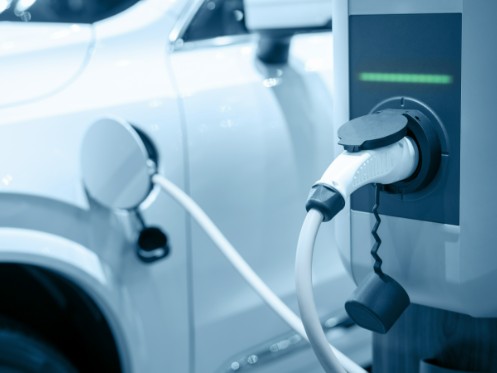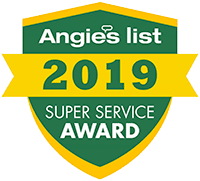Everything You Need to Know About EV Chargers

If you already own an EV here in Seattle, WA, or are considering buying one, you’re definitely going to have to learn about EV charging infrastructure. Fortunately, Seattle is one of the best places in the United States to own and operate an EV. There are already over 3,000 public EV charging stations in and around the city. Amazingly, over 500 of them are completely free to use. The wealth of charging locations notwithstanding, most EV owners will still end up charging their vehicles at home more often than not. If that’s your plan, then you’ll need to know about your residential EV charging options. To help, here’s everything you need to know about home EV chargers. We’ll cover the available types, what you need to install one, and the charging performance you can expect from each.
Level 1 EV Charging
The most basic type of EV charging you can do at home makes use of a Level 1 EV charger. A Level 1 EV charger is little more than a wire that has your vehicle’s standard charging connector on one end and a three-prong plug on the other. This allows you to plug your EV into any standard 120-volt outlet in your home to charge it.
The trouble with Level 1 chargers is that they’re very slow. If you’re lucky, you can expect to add about five miles of range to your EV for every hour you charge it. That means it would take you 60 hours to fully charge an EV with a 300-mile range. However, it’s fast enough to add about 60 miles of range to your EV overnight.
For that reason, a Level 1 EV charger is typically only suitable in two situations. It’s great to keep as an emergency charger while you’re out and about. That’s because it’s relatively easy to find a 120-volt outlet in a pinch to give your EV a small range boost when you need it. The other situation is for people who only use their EVs for infrequent local trips. So, they’re great for people with short commutes or those that use them for shopping at local stores and little else.
Level 2 EV Charging
The next type of EV charging you can do at home involves the installation and use of a Level 2 EV charger. Unlike a Level 1 EV charger, these require a 240-volt circuit in your home to operate. This is the same type of circuit you’d find powering large appliances in your home such as an electric clothes dryer. Plus, a Level 2 EV charger is something you’ll need to purchase since you won’t get one with your EV.
Unless you happen to already have a 240-volt outlet near where you plan to charge your EV, you’ll need to have one installed. Ideally, the circuit you’re planning to use for your Level 2 charger should feature an AFCI/ARC fault circuit breaker. And, if you’re planning to simply plug the charger into a standard 240-volt outlet, it should be an outlet that features GFCI protection. These features protect your vehicle and charge from damage due to short circuits. However, most Level 2 EV chargers allow you to hardwire them into a 240-volt circuit without an outlet at all.
Level 2 EV chargers are the current preferred choice for the majority of US EV owners. The reason for this is that a Level 2 charger is significantly faster than a Level 1 charger. With a Level 2 charger, you can add about 25 miles of range to your EV for every hour you charge. Level 2 chargers use the same technology as the majority of the public chargers you’ll find around Seattle. For those who want to use their EV for longer trips, a Level 2 charger is essential because it’ll give you a full charge within eight to ten hours.
Choosing the Right Charger for Your EV
The good news is that if you plan to use a Level 1 charger with your EV, you shouldn’t need to do much to prepare for it. As long as you have a standard outlet near where you want to charge your vehicle, you’re good to go. Plus, the vast majority of EVs come standard with a compatible Level 1 charger. The only notable exception is Tesla EVs, which stopped shipping with Level 1 chargers in 2022. Regardless, you should consult your vehicle’s manufacturer to see if you need to purchase a Level 1 charger for your vehicle.
If you want to purchase a Level 2 charger for your EV, you’ll need to make a few decisions first. The most important one is how much amperage you’d like your charger to support. In short, the higher the amperage of your charger, the faster it will charge your EV. However, you’ll also need your home’s electrical service and electrical panel to support the amperage you select.
The best way to decide on amperage is to check your vehicle’s specifications first. Most EVs on the market today can’t use amperage any higher than about 48. That makes a sub-40 Amp charger the current sweet spot for maximum home charging performance. However, you may wish to install a higher-amperage circuit to future-proof your installation a bit. There’s every reason to believe that future Level 2 charging equipment will support higher amperages and thus, even faster charging.
You will also want to double-check that any charging station you consider supports the same type of charging connector as your vehicle. Here in North America, every EV except those from Tesla uses a J1772 connector to connect to charging equipment. And Tesla vehicles include an adapter that allows you to use a charger with J1772 connectors, anyway. However, American automakers are beginning to adopt Tesla’s standard charging connectors, beginning with 2024 model vehicles.
The good news about that is that it means owners of non-Tesla EVs will gain access to Tesla’s supercharger network, which offers the fastest EV charging times when you’re traveling. However, it will also mean you’ll need an adapter to use your J1772 connector-based Level 2 home charger or purchase one that natively supports the Tesla connector.
Your Local EV Charging Experts
If you’d like to have a Level 2 EV charger installed in your Seattle, WA, home, Brennan Electric can help. We can handle the whole job, from running a new dedicated 240-volt circuit for your charger to installing your charger wherever you plan to plug in your EV. We can also help you with electrical service and panel upgrades if your home needs them to support your new charging equipment. Plus, we also offer other electrical services, ranging from lighting installation to electrical repairs to hot tub wiring, RV plugins, and surge protection. We even install whole-home generators, too.
For residential EV charger installation in Seattle, WA, call the experts at Brennan Electric today!

